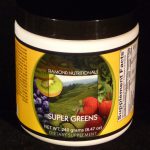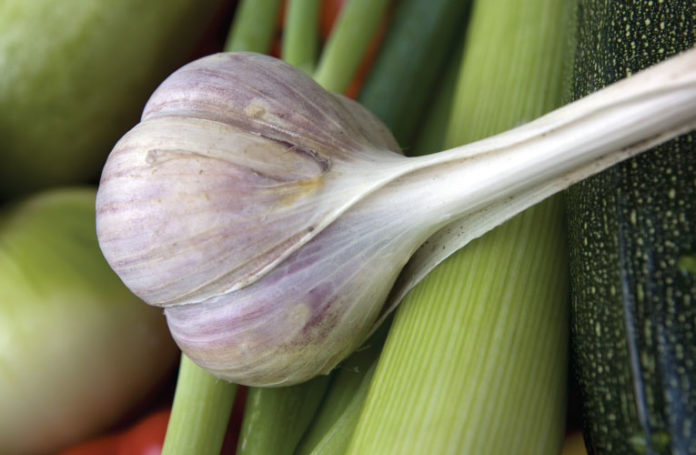A strong immune system may be the most valuable health commodity we can strive for. By boosting immunity and thereby preventing illnesses, we limit health issues and costly doctor visits. More importantly, you can feel great and live better!
Many plant-based foods offer critical vitamins and nutrients that are beneficial to the immune system. Boost your immunity by eating these vegetables and other plant-based foods.
Garlic and Onions
Both garlic and onions contain an organosulphur compound called allicin, which promotes white blood cell activity, helps alleviate minor ailments, and may even reduce the risk of certain diseases such as cancer.
Marni Wasserman, author of Plant-Based Diets for Dummies, says “It also stimulates other immune cells, which fight viral, fungal, and bacterial infections. Garlic kills with near 100 percent effectiveness the human rhinovirus, which causes colds, common flu, and respiratory viruses.”
Onions also contain quercetin, a bioflavonoid that supports respiratory and cardiovascular health. This nutrient can break up mucus in the head and chest, effectively helping those individuals with sinus issues or the common cold.
The National Cancer Institute cites several population studies and clinical trials, which offer evidence that garlic may help to prevent cancer of the stomach, breast, colon, and more:
“Protective effects from garlic may arise from its antibacterial properties or from its ability to block the formation of cancer-causing substances, halt the activation of cancer-causing substances, enhance DNA repair, reduce cell proliferation, or induce cell death.”
Ginger
Ginger contains the natural anti-inflammatory chemicals shagaol and gingerol. Both are known to stimulate circulation, delivering more oxygen to your tissues to protect them and speed healing.
Drinking ginger tea can provide relief when you have a cold coming on. The heat, combined with a hint of spiciness soothes the throat and sinuses. I suggest to double-check that whatever ginger-based food you’re consuming contains real ginger and not an artificial flavoring.
Hot Peppers
Hot peppers, particularly cayenne, habanero, and chili peppers, contain capsaicin. Capsaicin has anti-inflammatory properties and may sound familiar from its use in topical pain relief creams. This compound also increases the production of white blood cells, thereby boosting your immune system and fighting illnesses.
According to New Mexico State University’s College of Agriculture, the highest concentration of capsaicin is found in the white, fleshy part of the pepper that connects the seeds to the inner walls… so don’t throw that part away! Peppers also contain Vitamins C and B6, other immune system heroes.
Squash
Squash contains carotenoids, which decrease the risk of certain cancers and heart disease. Carotenoids include alpha- and beta-carotene, heralded for their anti-aging properties. Your body needs both to produce Vitamin A. Carotenes give squash and other vegetables their orange color.
The University of Maryland Medical Center reported, “Studies that look at big groups of people suggest that those who eat four or more daily servings of fruits and vegetables rich in beta-carotene may reduce their risk of developing heart disease or cancer. Other preliminary studies suggest that eating foods rich in beta-carotene reduces the risk of Sporadic ALS (Lou Gehrig Disease).”
Miso Soup
Miso’s enzymes and probiotics (healthy bacteria) may help fight infection. Once you already have a cold, miso soup can help ease symptoms, and some sources claim it speeds recovery.
Miso has been known to help with irritable bowel syndrome and Crohn’s disease, and may even help to prevent some cancers. Keep in mind, however, that most Miso soups contain a lot of sodium. So, you may want to consider making it from scratch or pass on this on altogether if you are at risk for heart disease.
Chickpeas (AKA Garbanzo Beans)
Many people think they have to consume animals to get iron. But iron is also found in beans and legumes. Chickpeas offer the bonuses of vitamin B6 and zinc. According to the Cleveland Clinic, B6 is ”critical in how your immune system functions,“ and “zinc appears to help slow down the immune response and control inflammation in your body.”
Soy Milk
Soy milk usually has Vitamin D added to it, sometimes more than in cow’s milk. It can also provide an alternative from cow’s milk, which some people say makes them feel more “phlegmy” when they have a cold. Vitamin D3 not only helps the immune system, but improves sleep.
Sufficient rest and sleep are critical to recovery from colds and flus. Although soy has been controversial, Cleveland Clinic says, “when studies suggest a possible correlation between food and cancer, media outlets often overplay them.” If you have concerns about soy, consult your doctor or a nutritionist.
Oats
Oats contain beta-glucan, a type of soluble fiber with antimicrobial and antioxidant capabilities. This type of fiber can help lower your levels of LDL cholesterol and thus help to lower the risk of heart disease. This soluble fiber dissolves in water, creating a type of a gel which keeps you fuller for longer; and also acts as a prebiotic, which nourishes the good bacteria in your gut.
Mushrooms
“Studies show that mushrooms increase the production and activity of white blood cells, making them more aggressive. This is a good thing when you have an infection,” says Douglas Schar, DipPhyt, MCPP, MNIMH, director of the Institute of Herbal Medicine in Washington, DC.
The University of Florida Institute of Food and Agricultural Sciences studied the health effects of shiitake mushrooms in particular. They found evidence of “increased immunity in people who ate a cooked shiitake mushroom every day for four weeks.”
Leafy Green Vegetables
These contain iron, vitamin D, and folate, all known immunity boosters already discussed here. Offering a host of health benefits, why wouldn’t you eat leafy green vegetables? Even if you don’t enjoy the taste of them raw, try mixing them into soups, stews, or smoothies. Combine them with other foods on this list for unlimited possibilities.
Fortunately, there is a wide variety of plant-based foods that offer benefits for your immune system. Combine those on the list that you like and create your own immunity-boosting dishes. You might have noticed a lot of these foods are typically found in Asian or Indian cuisines. Chana masala, anyone?
Need Some Help Getting All Your Daily Fruits and Veggies?
 In an ideal world, we would be able to eat a proper diet every day. For most, this is not always possible. To help ensure a proper balance of immune-boosting vegetables (and fruits), I recommend Diamond Nutritionals’ Super Greens. Two scoops mixed in juice or water once a day provides many of the benefits of several servings of vegetables and fruits.
In an ideal world, we would be able to eat a proper diet every day. For most, this is not always possible. To help ensure a proper balance of immune-boosting vegetables (and fruits), I recommend Diamond Nutritionals’ Super Greens. Two scoops mixed in juice or water once a day provides many of the benefits of several servings of vegetables and fruits.
—
Photo credit: cooddy / bigstock.com








